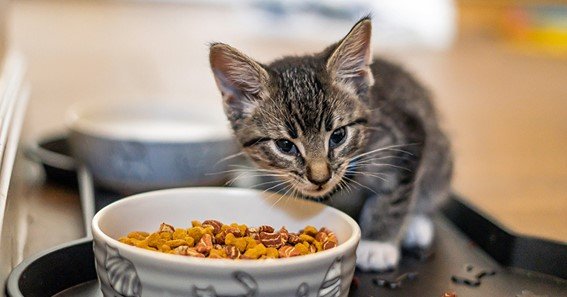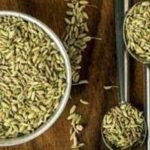As a pet parent, it’s important to provide your kitten with the right nutrition to ensure healthy growth and development. One common question new pet owners have is: can kittens eat dry food? While dry food is a convenient option, there are a few things to consider before incorporating it into your kitten’s diet. In this article, we’ll explore when kittens can start eating dry food, its nutritional value, and the best tips for transitioning your kitten to a dry food diet.
Can Kittens Eat Dry Food Safely?
Yes, kittens can eat dry food safely, but timing is key. Kittens are typically ready to start eating dry food around 6-8 weeks of age, after they have been weaned off their mother’s milk. At this stage, their teeth are still developing, so it’s important to choose a high-quality, easily chewable dry food specially formulated for kittens. Look for kibble that is small and soft enough for them to handle without difficulty.
Nutritional Value of Dry Food for Kittens
The nutritional value of dry food for kittens is a critical factor when selecting the right product. High-quality kitten dry food should be rich in protein, fats, and essential nutrients to support your kitten’s rapid growth. Since kittens have different nutritional needs compared to adult cats, it’s important to feed them food specifically designed for kittens. Always check the label to ensure that the dry food meets the nutritional standards for kitten growth.
Best Dry Food for Kittens
When searching for the best dry food for kittens, look for brands that prioritize high protein content, essential vitamins, and minerals. Some top options on the market include Royal Canin Kitten Dry Food, Hill’s Science Diet Kitten, and Purina Pro Plan Kitten Food. These brands offer balanced nutrition and cater specifically to the needs of growing kittens.
Transitioning Kittens to Dry Food
Transitioning kittens to dry food should be done gradually. Start by mixing a small amount of dry food with their wet food, and slowly increase the proportion of dry food over the course of 7-10 days. This gradual transition helps kittens adjust to the texture of dry food and reduces the risk of digestive upset.
Dry Food in a Kitten’s Diet
While dry food is convenient and can be part of a balanced diet, it’s essential to ensure your kitten is also staying hydrated. Kittens often don’t drink enough water on their own, so you may want to offer a mix of dry food versus wet food for kittens to help maintain their hydration levels. Wet food has higher moisture content, which can be beneficial for their urinary health.
Kittens’ Reaction to Dry Food
Kittens’ reaction to dry food can vary. Some may adapt quickly and enjoy the texture, while others may prefer the softness of wet food. It’s important to observe how your kitten responds and ensure they are eating well. If your kitten seems hesitant, try moistening the dry food with a little water to make it easier to chew.
FAQ
- Can kittens eat dry food safely?
Yes, kittens can eat dry food safely after they are weaned, usually around 6-8 weeks of age. Ensure the food is specifically formulated for kittens. - What is the best dry food for kittens?
Some of the best dry food options for kittens include Royal Canin Kitten Dry Food, Hill’s Science Diet Kitten, and Purina Pro Plan Kitten Food. - When should I start feeding dry food to kittens?
You can start feeding dry food to kittens once they are fully weaned, typically between 6 and 8 weeks of age. - Should kittens eat dry food exclusively?
It’s beneficial to offer a mix of dry and wet food to ensure kittens stay hydrated and get balanced nutrition. - How do I transition my kitten to dry food?
Gradually mix dry food with wet food over a period of 7-10 days, increasing the amount of dry food until your kitten adjusts.
In conclusion, kittens can eat dry food safely once they are ready, but it’s important to choose high-quality kitten food that provides all the essential nutrients for their growth. By following the right steps and paying attention to your kitten’s response, you can ensure they enjoy a balanced, healthy diet.










